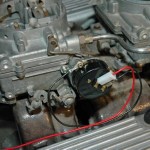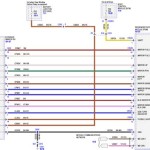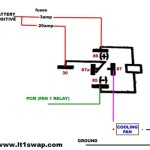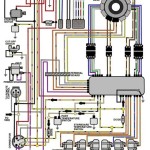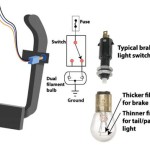Electrical Wiring Harness Connectors are components that join electrical wires and cables together, providing a secure and reliable connection. These connectors are crucial in various electrical systems, such as automotive wiring harnesses, industrial machinery, and household appliances.
Harness connectors offer key benefits like durability, resistance to environmental factors, and ease of installation. A significant historical development in this field was the introduction of modular connectors, allowing for quick and versatile connection and disconnection.
This article will delve into the design, types, applications, and recent advancements in electrical wiring harness connectors, providing a comprehensive understanding of their significance in modern electrical systems.
Electrical Wiring Harness Connectors play a vital role in electrical systems, ensuring reliable and efficient connections. Their design, functionality, and applications are influenced by various essential aspects:
- Durability: Withstanding harsh conditions and ensuring longevity
- Connectivity: Facilitating secure and stable electrical connections
- Modularity: Enabling quick and versatile assembly and disassembly
- Safety: Guaranteeing protection against electrical hazards
- Customization: Tailoring connectors to specific requirements
- Efficiency: Minimizing energy loss and maximizing performance
- Reliability: Ensuring consistent and dependable operation
- Industry Standards: Adhering to established guidelines for safety and compatibility
- Cost-effectiveness: Balancing affordability with quality and performance
These aspects are interconnected, influencing the overall design and functionality of wiring harness connectors. For instance, durability and reliability are key considerations for harsh environments, while modularity and cost-effectiveness are crucial for mass production.
Durability
In the realm of Electrical Wiring Harness Connectors, durability stands as a paramount aspect, guaranteeing reliable performance amidst challenging operating environments. It encompasses various facets that endow connectors with the ability to withstand extreme temperatures, humidity, vibration, and other adverse conditions.
- Material Selection: Utilizing robust materials like high-grade plastics, metals, and alloys ensures resistance to corrosion, abrasion, and impact.
- Environmental Protection: Enclosures, seals, and coatings protect connectors from dust, moisture, and contaminants, extending their operational lifespan.
- Mechanical Integrity: Robust designs and precision manufacturing techniques ensure connectors can withstand physical stress, vibration, and shock without compromising connections.
- Quality Control: Rigorous testing and inspection processes verify the durability of connectors, ensuring they meet industry standards and perform reliably in demanding applications.
By incorporating these facets of durability, Electrical Wiring Harness Connectors are equipped to endure the rigors of real-world scenarios, from harsh industrial settings to demanding automotive environments. Their longevity and reliability contribute to the overall performance and safety of electrical systems.
Connectivity
In the realm of Electrical Wiring Harness Connectors, connectivity is the cornerstone of reliable and efficient performance. It refers to the ability of connectors to establish and maintain secure electrical connections, ensuring uninterrupted signal and power transmission.
Electrical Wiring Harness Connectors achieve connectivity through various mechanisms. Crimping, soldering, and insulation displacement techniques create robust electrical contacts between wires and terminals. These connections are designed to withstand vibration, corrosion, and other environmental factors that could compromise signal integrity. Additionally, connectors often incorporate locking mechanisms or strain reliefs to prevent accidental disconnection.
The importance of connectivity in Electrical Wiring Harness Connectors cannot be overstated. Secure connections minimize electrical resistance, reducing power loss and ensuring optimal signal transmission. They also prevent arcing and overheating, which can lead to electrical failures and safety hazards. In critical applications such as medical devices or industrial control systems, reliable connectivity is essential for ensuring the safety and integrity of the entire system.
Examples of connectivity in Electrical Wiring Harness Connectors abound. In automotive applications, connectors facilitate the connection between various electrical components, such as sensors, actuators, and control modules. In industrial settings, connectors enable the interconnection of machinery, automation systems, and power distribution networks. The ability to establish secure and stable electrical connections is crucial for the reliable operation of these complex systems.
Understanding the importance of connectivity in Electrical Wiring Harness Connectors is essential for engineers, technicians, and anyone involved in the design or maintenance of electrical systems. By ensuring secure and reliable connections, these connectors play a vital role in the safety, efficiency, and performance of electrical systems across a wide range of applications.
Modularity
In the realm of Electrical Wiring Harness Connectors, modularity holds immense significance, facilitating quick and versatile assembly and disassembly. It stems from the concept of designing connectors with standardized interfaces and interchangeable components, allowing for easy integration and reconfiguration of electrical systems.
- Standardized Interfaces: Connectors adhere to industry-defined interface standards, ensuring compatibility between different manufacturers and components, simplifying assembly and replacement.
- Interchangeable Components: Modular connectors are designed with interchangeable components, such as terminals, inserts, and housings, enabling customization and adaptation to specific application needs.
- Simplified Assembly: Pre-assembled modules and color-coded components reduce assembly time and minimize errors, enhancing efficiency and productivity.
- Easy Reconfiguration: Modularity allows for quick reconfiguration of wiring harnesses to accommodate design changes, upgrades, or repairs, reducing downtime and maintenance costs.
Modularity in Electrical Wiring Harness Connectors brings numerous benefits. It accelerates production processes, allowing for faster assembly and reconfiguration of electrical systems. Standardization reduces the need for custom components, minimizing lead times and costs. Moreover, modularity enhances flexibility, enabling easy adaptation to evolving requirements and technological advancements. This aspect is particularly valuable in industries where adaptability and rapid response to change are crucial.
Electrical Wiring Harness Connectors
When it comes to electrical systems, safety is paramount, which is why Electrical Wiring Harness Connectors play a crucial role in guaranteeing protection against electrical hazards.
Electrical Wiring Harness Connectors are designed with safety features that protect against the risk of electrical shocks, short circuits, and fires. These connectors incorporate insulation materials with high dielectric strength to prevent current leakage and minimize the risk of electrical arcs. Additionally, they are often equipped with features such as shrouds, covers, and strain reliefs to prevent accidental contact with live terminals and protect against mechanical damage.
In practical applications, Electrical Wiring Harness Connectors ensure safety in various settings. For example, in the automotive industry, these connectors are vital for preventing electrical failures that could lead to accidents. In industrial machinery, they protect against electrical hazards in harsh environments, reducing the risk of downtime and accidents. Moreover, in medical equipment, reliable connectors ensure uninterrupted power supply and minimize the risk of electrical shocks to patients.
In conclusion, the connection between “Safety: Guaranteeing protection against electrical hazards” and “Electrical Wiring Harness Connectors” is inseparable. These connectors are critical components of electrical systems, providing essential protection against electrical hazards, ensuring reliable operation, and preventing accidents.
Customization
In the domain of Electrical Wiring Harness Connectors, customization holds significant importance, enabling the adaptation of connectors to meet specific requirements and diverse application scenarios. This customization encompasses various aspects, empowering engineers and designers to tailor connectors for optimal performance and seamless integration.
- Terminal Options: A wide range of terminal types, such as crimp, solder, and insulation displacement contacts, accommodates different wire sizes, connection methods, and current ratings.
- Housing Materials: Connectors can be customized with housing materials like nylon, PBT, and metal to suit environmental conditions, mechanical strength, and temperature requirements.
- Connector Configuration: The number of contacts, pin arrangements, and connector orientation can be tailored to fit specific mating requirements and space constraints.
- Environmental Protection: Customization extends to environmental protection levels, including IP ratings for moisture and dust resistance, ensuring reliable operation in harsh conditions.
Customization empowers engineers to design connectors that align precisely with application demands. It enhances the efficiency, performance, and reliability of electrical systems across industries, including automotive, industrial automation, and medical devices. By tailoring connectors to specific requirements, engineers can optimize electrical connections, reduce assembly time, and ensure optimal system functionality.
Efficiency
In the domain of Electrical Wiring Harness Connectors, the pursuit of efficiency is paramount, driving the design and implementation of connectors that minimize energy loss and maximize performance. This efficiency translates directly into enhanced system reliability, reduced operating costs, and improved environmental sustainability.
Electrical Wiring Harness Connectors achieve efficiency through meticulous design and material selection. High-conductivity materials, precision engineering, and optimized contact designs minimize electrical resistance, reducing power dissipation and energy loss. Additionally, proper insulation and shielding techniques prevent signal interference and crosstalk, ensuring reliable data transmission and minimizing signal degradation.
The practical significance of efficiency in Electrical Wiring Harness Connectors is evident in various applications. In automotive systems, efficient connectors reduce energy consumption, leading to improved fuel efficiency and lower emissions. In industrial automation, reliable connectors minimize downtime and maintenance costs by ensuring uninterrupted operation and preventing energy wastage. Moreover, in medical devices, efficient connectors contribute to patient safety and well-being by ensuring the reliable delivery of power and signals.
Reliability
In the realm of Electrical Wiring Harness Connectors, reliability stands as a cornerstone, ensuring consistent and dependable operation in the face of diverse operating conditions. This reliability forms the backbone of robust electrical systems, preventing costly downtime, enhancing safety, and prolonging the lifespan of critical equipment.
Electrical Wiring Harness Connectors achieve reliability through meticulous design, precision manufacturing, and rigorous testing. High-quality materials, robust construction, and adherence to industry standards guarantee durability and resilience against environmental factors like vibration, shock, moisture, and extreme temperatures. Advanced engineering techniques minimize electrical resistance and signal loss, ensuring reliable power and data transmission.
Real-life examples abound showcasing the practical significance of reliability in Electrical Wiring Harness Connectors. In the automotive industry, reliable connectors ensure uninterrupted operation of critical systems, enhancing vehicle safety and performance. Within industrial automation, dependable connectors minimize downtime and maintenance costs, maximizing productivity and efficiency. Moreover, in medical devices, reliable connectors are essential for patient safety and well-being, ensuring uninterrupted power supply and reliable data transmission.
Understanding the connection between “Reliability: Ensuring consistent and dependable operation” and “Electrical Wiring Harness Connectors” is crucial for engineers, technicians, and anyone involved in the design, installation, and maintenance of electrical systems. By prioritizing reliability, these connectors become the foundation of robust and dependable electrical infrastructures, contributing to safety, efficiency, and longevity in a wide range of applications.
Industry Standards
Within the realm of Electrical Wiring Harness Connectors, adherence to industry standards is paramount, ensuring safety, compatibility, and optimal performance. These standards provide a common set of guidelines and specifications that manufacturers and users must follow, guaranteeing interoperability, reliability, and safety in electrical systems across various industries.
- Standardized Interfaces: Industry standards define standardized interfaces, ensuring compatibility between connectors from different manufacturers. This interchangeability simplifies system design, reduces manufacturing costs, and minimizes the risk of misconnections.
- Safety Regulations: Adherence to industry standards ensures compliance with safety regulations, such as those set by UL, CSA, and IEC. These standards specify requirements for insulation, voltage ratings, and environmental protection, minimizing the risk of electrical hazards.
- Quality Assurance: Industry standards establish quality assurance processes to ensure that connectors meet specific performance criteria. These processes include testing and certification, providing confidence in the reliability and durability of connectors.
- Environmental Protection: Industry standards address environmental protection by specifying requirements for materials and construction to ensure that connectors can withstand harsh conditions, such as exposure to moisture, chemicals, and extreme temperatures.
By adhering to industry standards, manufacturers can create Electrical Wiring Harness Connectors that are safe, reliable, and compatible. These standards foster innovation, promote fair competition, and protect consumers by ensuring a level playing field for manufacturers while safeguarding the integrity of electrical systems.
Cost-effectiveness
In the realm of Electrical Wiring Harness Connectors, cost-effectiveness plays a critical role in balancing affordability with quality and performance. Cost-effective connectors optimize manufacturing processes, reduce material usage, and minimize production costs while maintaining the desired levels of quality and performance. This delicate balance is achieved through innovative design, efficient manufacturing techniques, and strategic sourcing of materials.
Cost-effective Electrical Wiring Harness Connectors are essential components in various industries, including automotive, consumer electronics, and industrial automation. By reducing the overall cost of electrical systems, manufacturers can make their products more accessible and competitive in the market. Moreover, cost-effectiveness allows for the allocation of resources to other aspects of product development, such as advanced features and improved performance.
Real-life examples of cost-effective Electrical Wiring Harness Connectors abound. In the automotive industry, manufacturers have employed innovative designs and optimized production processes to reduce connector costs without compromising quality. This has contributed to the affordability and widespread adoption of advanced electronic systems in vehicles. Similarly, in the consumer electronics sector, cost-effective connectors have enabled the miniaturization and affordability of smartphones, tablets, and other portable devices.
Understanding the connection between “Cost-effectiveness: Balancing affordability with quality and performance” and “Electrical Wiring Harness Connectors” is crucial for manufacturers, engineers, and purchasers. Cost-effective connectors contribute to the overall success of electrical systems by optimizing costs, improving affordability, and enabling the development of innovative products. By carefully considering cost-effectiveness in the design and manufacturing of Electrical Wiring Harness Connectors, stakeholders can achieve a competitive edge and meet the evolving needs of the market.









Related Posts


